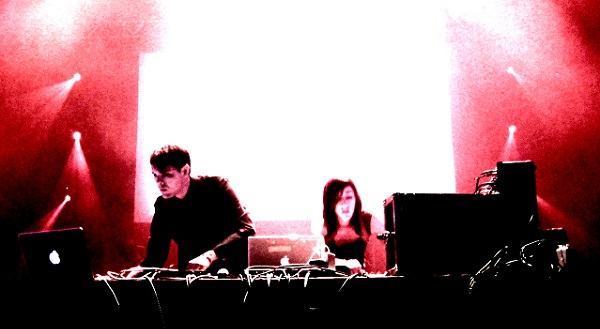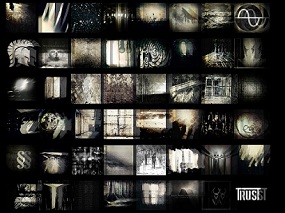Always Changing _ Interview with Orphx
You have mentioned in a previous interview that you improvise quite a bit during live performances, to what extent does the crowd affect this? Also, how do you think doing a live show compares to doing a DJ set?
Christie: We definitely respond to the crowd and the atmosphere of the space that we’re playing in. I think there’s a bit more risk in live performance because we are improvising in this way.
How would you explain the differences between performing in a club like Berghain compared to a festival like Maschinenfest?
Rich: Maschinenfest is more of a niche festival, focused on rhythmic noise, that attracts hardcore fans of that music. Whereas a club like Berghain tends to have a more diverse mix of people, especially as it has grown more popular. Over the last few years that we’ve been playing more in the techno scene and techno clubs, I think we had the sense that we should create sets that are less focused on noise and experimentation but that’s changing as we’ve released that techno audiences are open to the more extreme sides of our sound.
Christie: But there is more room for non-rhythmic experimentation at noise or industrial shows, whereas in a club there is more of an expectation that we will keep the crowd moving.
Do you have a favourite modulation or trick that you like to do on modulars that is less common on normal hardware and are you more likely to record jams or use snippets of audio?
Christie: The whole process of making and modulating sounds is different with a modular system than a normal synth or most software. There are many opportunities to create, filter and modulate sequences on the fly, and you each patch that you create can provide many different ways of breaking up and altering the sounds. The modules that I’m using are always changing and I like the ability to create different setups for shows and studio work. When we are making new work, we often improvise and then use pieces of the improvisations to create the finished tracks.


